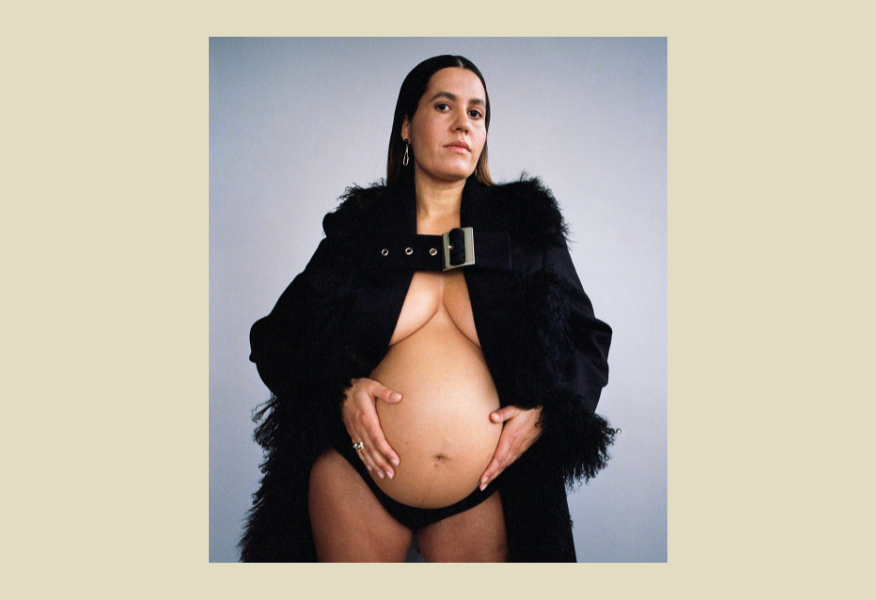
Maternity leave:
Existing rules and new solutions
For most people, pregnancy is happy news, but for many artists it can also be a cause for concern. Few are full-time salaried employees with the accompanying salary during maternity leave. According to a new Koda survey conducted by the think tank EQUALIS, seven out of ten musicians have conditions that make earning an income during maternity leave more challenging than for regular employees.
Dorthe Korfitzen, a counsellor at the Danish Artists' Association, is one of those who knows the problems surrounding parental leave for artists in practice.
She has in-depth experience with maternity legislation and the areas where artists do not get the necessary security. Therefore, she has also been involved in formulating several specific amendments that are on their way to the political level.
"Many artists and music creators would be better protected if the law was changed to suit artists' working lives," says Dorthe Korfitzen.
Until the rules are changed, she recommends individual counselling, starting with the work situation of the artist or performer who will be a parent. The current rules are not simple and depend on whether you are an employee or self-employed, she explains:
"If you are employed as an employee, you must fulfil three requirements to be entitled to parental benefits: You must be employed on the first day of your leave or the day before and have worked at least 160 hours in the last four full months before the leave. And you must have worked a minimum of 40 hours per month to be eligible for parental benefit."
Falling between two chairs
If you are self-employed with your own business, however, different rules apply. You must have worked at least 18.5 hours per week for at least 6 months within the last 12 months. In addition, you must have worked in the last month before the leave and have a profit in your own business.
But if you have both salary income and your own business, the rules can present challenges, explains Dorthe Korfitzen.
"Then you have to fulfil the requirements for both salaried employees and the self-employed to get work covered in both areas. And it's rare that our members fulfil the requirements in both categories. This may mean that you can be rejected as an employee but be approved for parental benefit for the self-employed," she says.
Artists and musicians often have an unpredictable working life, and tasks and income are not always fixed many months ahead.
That's why Dorthe Korfitzen recommends that members call as soon as they or their partner have a positive pregnancy test.
"The best advice is to call as soon as you're pregnant. It can be complicated if you have both a salary and your own business. And also that members who have their own business, where profits are limited, take out state health insurance, which also covers maternity leave."
Three solutions
There are almost 25,000 artists in Denmark, which includes writers, musicians and visual artists. The figures come from Statistics Denmark, which also categorises half of artists as combiners, earning a salary, fees and income from their own company. This group often falls between two stools when it comes to entitlement to parental benefits.
"The majority of Danes are ordinary employees, so the legislation is designed with them in mind. But if you're a member of a trade union, we can often find a solution that means you can receive parental benefits to some extent. It's rare that I have a counselling session where a member hasn't earned the right to anything at all. But it requires that they contact us in good time, because if the birth is just around the corner, it's often too late," says Dorthe Korfitzen.
Together with the Danish Artists' Union, she has helped draw up three proposals for changes to the parental leave legislation to ensure that self-employed workers and combines are better covered by the rules on parental benefits.
"One is the employment requirement for employees, which is that you have to be employed on the day you go on leave or the day before. We want to change this because the industry is full of short-term or fixed-term employment. The second is that you shouldn't be at a disadvantage just because you're a combiner. The new proposal means that you only have to fulfil the requirement in one category, but that you get compensation for the entire combined income. And the last proposal is that state health insurance could be expanded so that freelancers and combines can voluntarily join it and, as insured, receive at least 2/3 of the rate for maternity pay," says Dorthe Korfitzen.
"Many of our members will be better protected if the law is changed. Especially the group who are combiners will have greater security and predictability around maternity leave and finances."
Dansk Artist Forbund is collaborating with other organisations to get the political level and the Minister of Employment Ane Halsboe-Jørgensen to take a closer look at the proposals for changed employment requirements and better conditions for combi artists.
The need for good maternity rules applies to artists of all genders - there are just over 13,000 artists in Denmark under the age of 50.
Maternity leave in the music industry
- 7 out of 10 musicians have poor access to income during maternity leave.
- 47 % of the artists surveyed do not have a good knowledge of their maternity rights
- Music unions advise on hundreds of maternity cases annually
Source: Parental leave in the music industry, report by EQUALIS for Koda.
Text: Journalist Nanna Balslev
Photo: Artist Coco O photographed for Our Children magazine. Photographer Petra Kleis.

